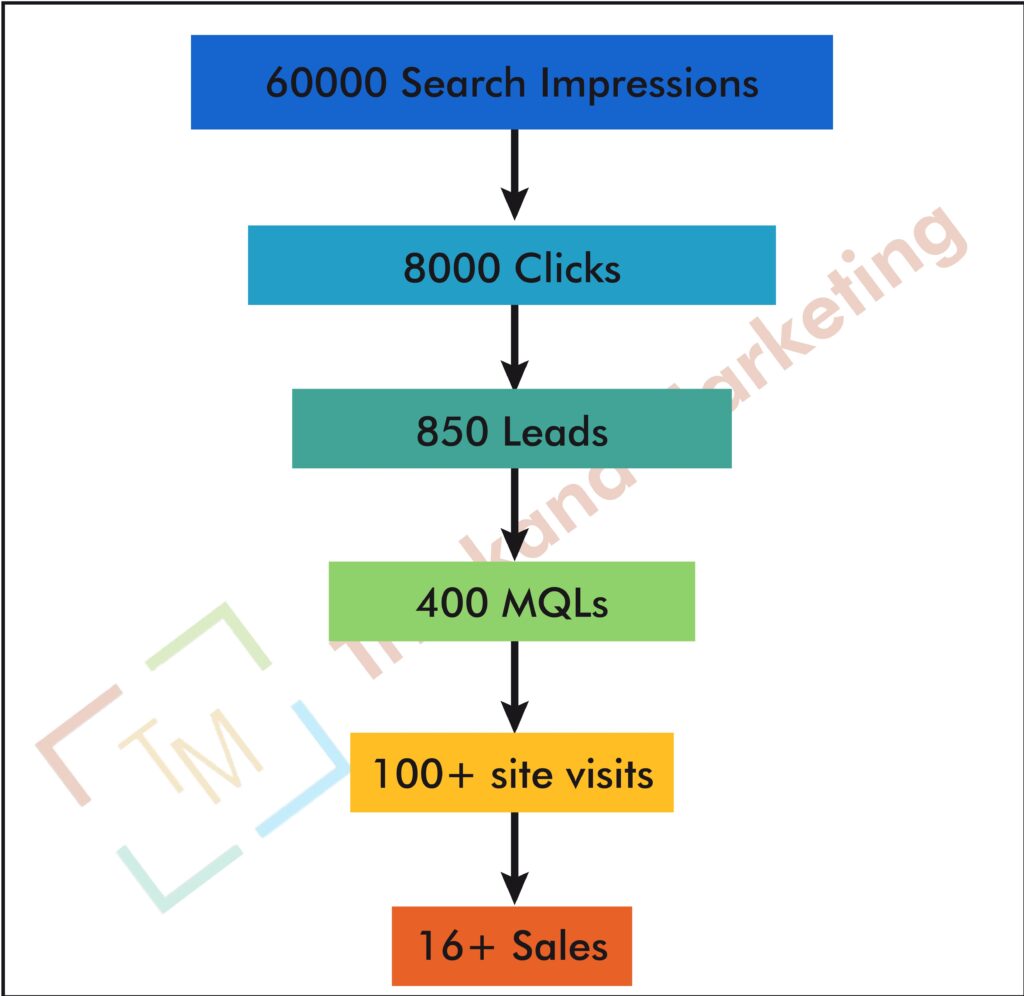In today’s digital age, patients often turn to the internet when seeking healthcare services. Whether they need a specialist, want to read reviews, or are looking for general health advice, the majority of people begin their search online. This means that healthcare practices must prioritize their online presence to stay competitive. The solution? Search Engine Optimization (SEO).
In this blog post, we will explore how SEO can drive more patients to your healthcare practice, the importance of an optimized website, and actionable strategies you can implement to improve your online visibility.
Table of Contents
Introduction to SEO for Healthcare Practices
Why SEO is Important for Healthcare Providers
Key Components of Healthcare SEO
How to Optimize Your Website for Local SEO
Best Practices for Healthcare Content Marketing
The Role of Patient Reviews in SEO
Mobile Optimization and User Experience
Tracking and Analyzing SEO Results
The Long-Term Benefits of SEO for Healthcare Practices
Introduction to SEO for Healthcare Practices <a name=”introduction”></a>
Search Engine Optimization (SEO) is the process of improving your website’s visibility in search engine results. For healthcare practices, this means optimizing your site so that potential patients can easily find you when they search for healthcare services or information related to your specialty.
The higher your practice ranks on search engine results pages (SERPs), the more likely it is that potential patients will visit your website, read about your services, and schedule an appointment. SEO is not just about being found but also about providing value, ensuring that visitors have a good experience on your site, and offering relevant, helpful content.
Why SEO is Important for Healthcare Providers <a name=”why-seo-is-important”></a>
The healthcare industry is incredibly competitive, and with more patients turning to online resources, having a strong digital presence is essential. SEO plays a pivotal role in:
- Increasing Online Visibility: An optimized site ranks higher on SERPs, making it easier for potential patients to find your practice.
- Attracting More Qualified Patients: Through targeted SEO strategies, you can attract patients actively looking for the specific services you offer.
- Establishing Trust and Authority: SEO involves creating content that addresses patient concerns, which helps establish your practice as an authority in your field.
- Improving User Experience: Optimized websites not only rank better but also offer a smoother, faster, and more informative experience for visitors.
According to research, 77% of patients use online searches before booking an appointment, making SEO a crucial aspect of your healthcare marketing strategy.
Key Components of Healthcare SEO <a name=”key-components”></a>
To drive more patients to your healthcare practice, it’s important to understand the fundamental components of SEO. These include keyword research, on-page optimization, technical SEO, local SEO, and content marketing. Let’s dive into each of these components in detail.
Keyword Research <a name=”keyword-research”></a>
Keyword research is the foundation of any successful SEO strategy. In the healthcare industry, it’s important to identify the keywords that potential patients are using to search for services similar to yours.
How to Conduct Keyword Research:
- Use tools like Google Keyword Planner, SEMrush, or Ahrefs to find high-volume keywords related to your services.
- Focus on long-tail keywords (phrases with 3+ words) as they are more specific and usually indicate a higher level of intent (e.g., “pediatrician near me” or “best cardiologist in Boston”).
- Consider both medical terminology and layman’s terms that patients might use when searching for healthcare services.
On-Page Optimization <a name=”on-page-optimization”></a>
On-page optimization refers to the changes you make directly on your website to improve its search engine ranking. This includes optimizing your titles, meta descriptions, headers, and content for relevant keywords.
Key On-Page SEO Practices:
- Title Tags: Ensure that each page of your site has a unique, keyword-optimized title.
- Meta Descriptions: Write concise, compelling meta descriptions that include your main keywords and encourage users to click.
- Header Tags (H1, H2, H3): Use header tags to structure your content and make it easier for search engines to understand.
- Image Alt Text: Include descriptive alt text for images, ensuring that they are optimized with relevant keywords.
Technical SEO <a name=”technical-seo”></a>
Technical SEO ensures that your website meets the requirements of modern search engines. This includes site speed, mobile-friendliness, secure connections, and crawlability.
Essential Technical SEO Factors:
- Mobile Responsiveness: Since most searches happen on mobile devices, your site must be fully responsive.
- Page Speed: A fast-loading site improves user experience and is favored by search engines.
- SSL Certificate: Secure websites (with HTTPS) are more trusted by users and search engines alike.
- Crawlability: Ensure that search engines can easily crawl and index your site.
Local SEO <a name=”local-seo”></a>
For healthcare practices, local SEO is vital because most patients are searching for providers within a specific geographic area. Optimizing your website for local search can significantly improve your visibility for “near me” searches.
Steps to Improve Local SEO:
- Google Business Profile: Claim and optimize your Google Business Profile with accurate business information, operating hours, and services.
- Local Citations: Ensure your practice is listed in healthcare directories like Healthgrades, Zocdoc, and WebMD.
- NAP Consistency: Keep your Name, Address, and Phone Number (NAP) consistent across all online platforms.
Content Marketing for Healthcare <a name=”content-marketing”></a>
Content marketing is a powerful tool in healthcare SEO. By creating valuable, informative, and SEO-optimized content, you can attract and engage potential patients.
Types of Content for Healthcare Practices:
- Blog Posts: Write educational blog posts that answer common patient questions (e.g., “How to Manage Diabetes”).
- Service Pages: Create detailed pages for each service you offer, optimized with relevant keywords.
- Patient Testimonials: Showcase patient stories and reviews to build trust.
How to Optimize Your Website for Local SEO <a name=”local-seo-optimization”></a>
Local SEO is critical for healthcare providers, as patients often search for practices within their vicinity. Here’s how to optimize your site:
- Claim Your Google Business Profile: Ensure that your practice is listed with accurate information on Google Business. Regularly update this profile with new information and patient reviews.
- Local Keywords: Incorporate location-specific keywords into your content, such as “best dentist in Chicago” or “pediatric care Los Angeles.”
- Add a Map to Your Contact Page: Make it easy for patients to find your practice by including an embedded Google Map on your website.
- Encourage Online Reviews: Reviews significantly impact your local search ranking. Encourage satisfied patients to leave reviews on Google and healthcare-specific platforms.
Best Practices for Healthcare Content Marketing <a name=”content-marketing-best-practices”></a>
For content marketing to effectively drive traffic and new patients, it must be engaging, informative, and SEO-friendly. Here are some best practices:
- Create Patient-Centric Content: Focus on writing content that addresses common concerns or frequently asked questions from patients. This builds trust and provides value.
- Use Visuals: Incorporate images, infographics, and videos to make your content more engaging and easier to understand.
- Update Content Regularly: Medical information can change rapidly. Regularly update your content to ensure it is accurate and relevant.
- Optimize for Featured Snippets: Google’s featured snippets provide quick answers to user queries. Structuring your content to answer specific questions can increase your chances of appearing in these snippets.
The Role of Patient Reviews in SEO <a name=”patient-reviews”></a>
Patient reviews are a crucial element of local SEO. Not only do they influence potential patients, but they also affect your search engine rankings.
Why Patient Reviews Matter:
- Trust and Credibility: Positive reviews build trust with potential patients and help them feel more confident about choosing your practice.
- Improved Local SEO: Google considers the quantity and quality of reviews when ranking local search results. The more positive reviews you have, the better your chances of ranking higher.
- Encourage Engagement: Responding to reviews, both positive and negative, shows that you value patient feedback and are committed to improving the patient experience.
Mobile Optimization and User Experience <a name=”mobile-optimization”></a>
With over 60% of internet searches happening on mobile devices, having a mobile-optimized website is essential for healthcare practices. Mobile optimization not only improves SEO but also enhances the patient experience.
Key Factors for Mobile Optimization:
- Responsive Design: Ensure that your website adjusts to fit different screen sizes, providing an optimal viewing experience on mobile devices.
- Fast Load Times: Mobile users expect websites to load quickly. Use tools like Google PageSpeed Insights to improve your mobile site speed.
- Mobile-Friendly Forms: Make it easy for patients to fill out appointment forms or contact forms on their mobile devices.
Tracking and Analyzing SEO Results <a name=”tracking-results”></a>
To understand how well your SEO efforts are working, it’s important to track and analyze the results. By using tools like Google Analytics and Google Search Console, you can monitor key metrics such as:
- Organic Traffic: The number of visitors coming to your site from search engines.
- Keyword Rankings: Track how well your website is ranking for target keywords.
- Bounce Rate: This indicates how many visitors leave your site without interacting. A high bounce rate can signal a need for better content or design.
Regularly reviewing and adjusting your SEO strategy based on data will help you achieve the best results over time.
The Long-Term Benefits of SEO for Healthcare Practices
Investing in SEO for your healthcare practice is a long-term strategy that can yield significant results. From improving online visibility to attracting more qualified patients, SEO helps build a solid digital presence. By focusing on key areas like keyword research, local SEO, and content marketing, you can position your practice as a trusted healthcare provider in your community.
Remember, SEO is not a one-time effort but a continuous process. By staying updated with SEO best practices and regularly optimizing your site, you can ensure steady growth and success for your healthcare practice.
By implementing these SEO strategies, your healthcare practice can attract more patients, improve your online presence, and establish authority in the healthcare industry. Start optimizing today to stay ahead of the competition!



